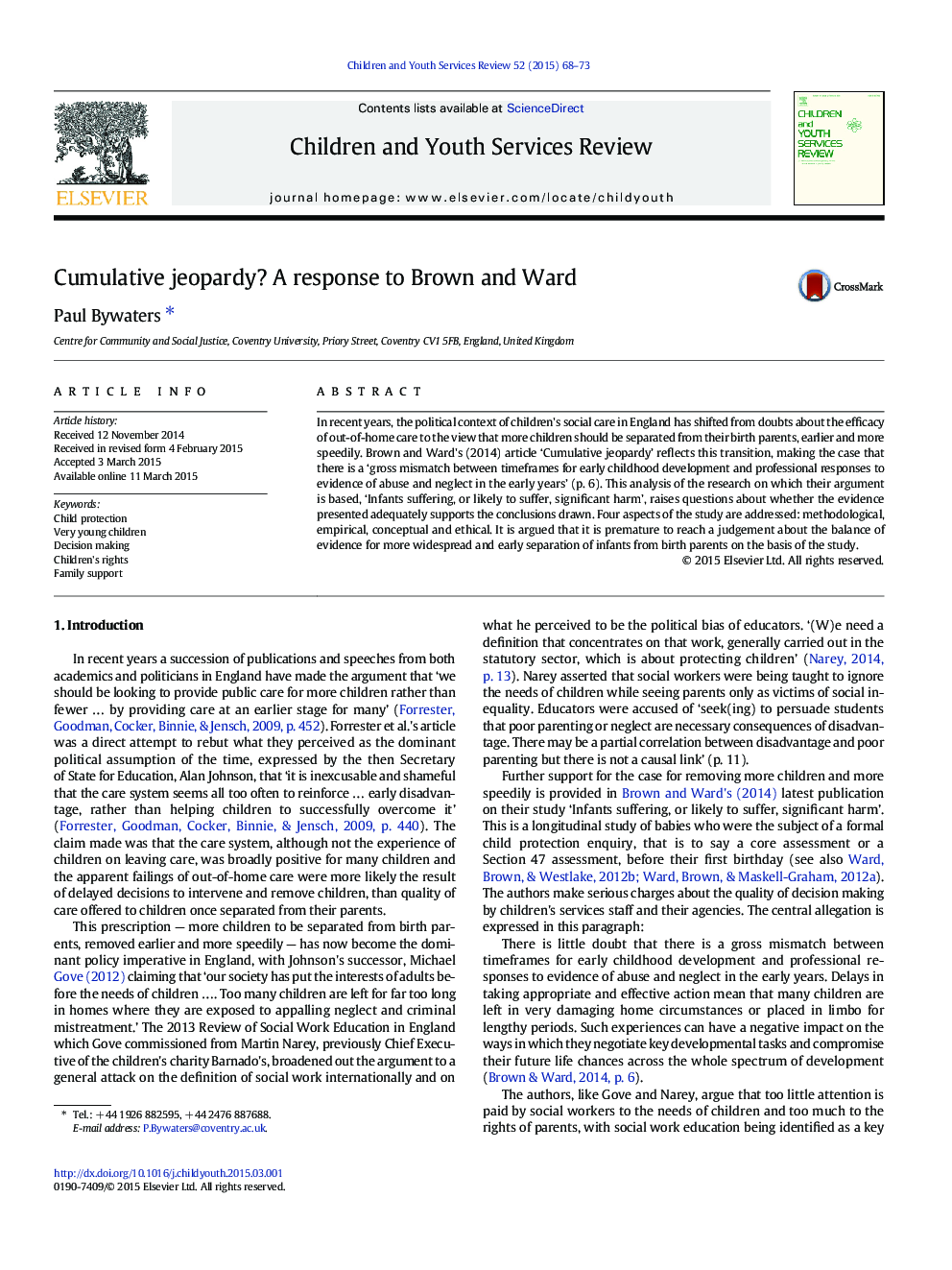| کد مقاله | کد نشریه | سال انتشار | مقاله انگلیسی | نسخه تمام متن |
|---|---|---|---|---|
| 346003 | 617782 | 2015 | 6 صفحه PDF | دانلود رایگان |
• Removing more children to out-of-home care is a political priority in England.
• A longitudinal study of infants by Brown and Ward is influential is this argument.
• The conclusions drawn from the study are insufficiently supported by the evidence.
• Methodological, empirical, conceptual and ethical concerns are discussed.
• Caution should be exercised in building extensive policy on this evidence.
In recent years, the political context of children's social care in England has shifted from doubts about the efficacy of out-of-home care to the view that more children should be separated from their birth parents, earlier and more speedily. Brown and Ward's (2014) article ‘Cumulative jeopardy’ reflects this transition, making the case that there is a ‘gross mismatch between timeframes for early childhood development and professional responses to evidence of abuse and neglect in the early years’ (p. 6). This analysis of the research on which their argument is based, ‘Infants suffering, or likely to suffer, significant harm’, raises questions about whether the evidence presented adequately supports the conclusions drawn. Four aspects of the study are addressed: methodological, empirical, conceptual and ethical. It is argued that it is premature to reach a judgement about the balance of evidence for more widespread and early separation of infants from birth parents on the basis of the study.
Journal: Children and Youth Services Review - Volume 52, May 2015, Pages 68–73
